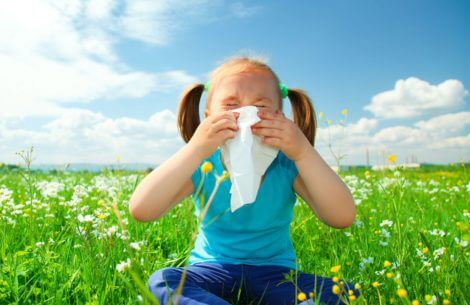With springtime right around the corner, many of my seasonal allergy patients have been calling, wondering what to do in advance of the season and what to do when allergies strike. The first idea is to limit exposure to allergens. This does not closing yourself indoors all spring and summer. Try showering at night and especially washing your hair, you remove pollens that way. Similarly, use an air purifier, especially in the bedroom where so many hours are spent. Get comfortable using a nettipot, to help rinse the nasal passages of inhaled pollen. All these things help reduce allergy symptoms. If you like to line-dry your clothes in the summer, reconsider; wet clothes act as a perfect magnet for pollen, so consider hanging clothes inside during this time.
When we are allergic, there is a histamine response to the perceived threatening pollen. In our blood system, histamine travels in the mast cells. To help stabilize the mast cell membranes so they release less histamine, take the supplements vitamin C and bioflavonoid. The plant-based supplement bromelain, an enzyme derived from pineapple, can also be useful. It helps thin mucous and reduce inflammation. I also recommend fish oil to my seasonal allergy patients, which helps to balance immune system function so that you becomes less allergic over time.
Helping to diversify gut flora by taking a probiotic and including cultured foods in the diet, like miso, kefir and kimchi. This will also, over time, make people less sensitive to allergens.
A number of dietary changes can also be used. A teaspoon a day of local honey can help reduce sensitivity to pollen. If you’re sensitive to dairy, gluten, eggs or other foods, limit consumption especially during allergy season. For many people there is an “allergic load” phenomenon, where the body can take just so much assault. If you reduce some of the things you can control that you are sensitive to such as the foods you eat, you may well find you are less sensitive to others exposures such as pollen, which are harder to control!
Author: Amy Rothenberg ND is a Naturopathic Physician in Enfield CT (www.nhcmed.com). She is currently the President of the Massachusetts Society of Naturopathic Doctors (www.msnd.org). She is often interviewed by the media and writes widely on topics in natural medicine. She blogs for the Huffington Post http://www.huffingtonpost.com/author/amy-rothenberg-nd

